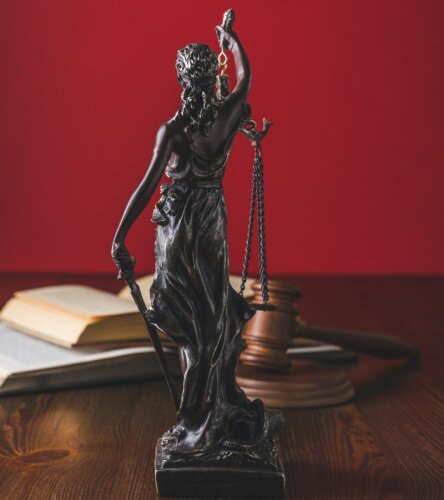Best Assault & Battery Lawyers in Jamaica
Share your needs with us, get contacted by law firms.
Free. Takes 2 min.
Or refine your search by selecting a city:
List of the best lawyers in Jamaica
About Assault & Battery Law in Jamaica
Assault and battery in Jamaica are governed by the provisions of the Offences Against the Person Act and other related legislation. Assault generally refers to any act that causes another person to apprehend immediate unlawful violence, while battery involves the application of force to another person. Both are considered criminal offenses and can result in severe penalties, including fines and imprisonment. Understanding the nuances of these laws is critical for both victims and alleged offenders.
Why You May Need a Lawyer
Engaging a lawyer is crucial in various situations involving assault and battery. If you have been accused of such an offense, a lawyer can help assess the charges, prepare your defense, and ensure that your rights are protected. Victims of assault and battery may also benefit from legal advice to navigate the process of pressing charges or seeking reparations. Additionally, legal counsel is valuable in negotiating settlements and understanding the potential outcomes of any legal proceedings.
Local Laws Overview
In Jamaica, assault and battery are addressed under several key laws, including the Offences Against the Person Act. Assault charges can range from common assault to aggravated assault, with varying degrees of penalties based on the severity of the offense. Battery typically involves the actual infliction of unlawful force, which can escalate charges to more serious offenses such as grievous bodily harm or wounding with intent. Self-defense is considered a valid legal defense, but it must be proportionate to the threat faced by the defendant. Understanding the distinctions between these offenses and the associated legal consequences is key to navigating similar legal issues.
Frequently Asked Questions
What constitutes assault in Jamaica?
Assault involves an act that causes someone to fear imminent unlawful violence. It does not require physical contact, just the threat or attempt to apply force.
What is the difference between assault and battery?
Assault is the threat of violence, while battery involves actual physical contact. Both can result in criminal charges under Jamaican law.
How can self-defense be proven in a legal case?
To claim self-defense, the accused must demonstrate that the force used was reasonable and necessary to prevent harm to themselves or others.
What are the potential penalties for assault and battery offenses?
Penalties vary based on the severity of the offense, ranging from fines to several years of imprisonment. Aggravated charges or repeat offenses can lead to harsher sentences.
Can someone press charges without physical evidence?
Yes, a complaint can be filed based on testimony or other supporting evidence. However, physical evidence may strengthen the case.
Is it possible to settle assault charges out of court?
Some cases may be settled out of court, but this depends on the nature of the offense and agreement between parties. Legal advice is essential in these situations.
What should I do if I am falsely accused of assault?
If falsely accused, it is critical to seek immediate legal advice to build a strong defense and gather evidence that supports your innocence.
Are there any defenses other than self-defense in assault cases?
Yes, other defenses can include consent, lack of intent, or alibi, depending on the circumstances surrounding the incident.
How long does a typical assault or battery case take to resolve?
The duration can vary widely depending on the complexity of the case and court schedules, ranging from a few months to over a year.
Can a minor be charged with assault and battery?
Yes, minors can be charged, but cases are usually handled differently within the juvenile justice system, focusing more on rehabilitation.
Additional Resources
For further assistance, consider reaching out to:
- The Jamaican Bar Association for legal services and referrals.
- The Legal Aid Council for free or reduced-cost legal assistance.
- Local police stations for guidance on filing charges or seeking protection.
- The Ministry of Justice, which offers information on legal rights and processes.
Next Steps
If you need legal assistance in assault and battery matters, begin by consulting with a qualified attorney who specializes in criminal law. Prepare all relevant documentation and evidence related to your case, and seek guidance on the best legal strategy. Additionally, consider utilizing legal aid services if financial constraints present an obstacle. Taking these steps early can significantly impact the resolution of your case.
Lawzana helps you find the best lawyers and law firms in Jamaica through a curated and pre-screened list of qualified legal professionals. Our platform offers rankings and detailed profiles of attorneys and law firms, allowing you to compare based on practice areas, including Assault & Battery, experience, and client feedback.
Each profile includes a description of the firm's areas of practice, client reviews, team members and partners, year of establishment, spoken languages, office locations, contact information, social media presence, and any published articles or resources. Most firms on our platform speak English and are experienced in both local and international legal matters.
Get a quote from top-rated law firms in Jamaica — quickly, securely, and without unnecessary hassle.
Disclaimer:
The information provided on this page is for general informational purposes only and does not constitute legal advice. While we strive to ensure the accuracy and relevance of the content, legal information may change over time, and interpretations of the law can vary. You should always consult with a qualified legal professional for advice specific to your situation.
We disclaim all liability for actions taken or not taken based on the content of this page. If you believe any information is incorrect or outdated, please contact us, and we will review and update it where appropriate.
Browse assault & battery law firms by city in Jamaica
Refine your search by selecting a city.















